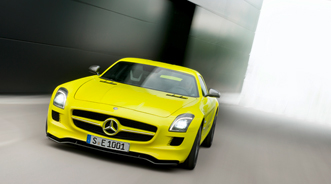Luxury Brand Dealers Rank Highest in New Pied Piper Prospect Satisfaction Index

By subscribing, you agree to receive communications from Auto Remarketing and our partners in accordance with our Privacy Policy. We may share your information with select partners and sponsors who may contact you about their products and services. You may unsubscribe at any time.
MONTEREY, Calif. –
Dealership sales staff are apparently going well beyond a “May I help you?” approach to potential buyers. According to a new industry index by Pied Piper, sales forces are showing extra effort in customer service, especially at luxury brand stores.
That improvement in sales effectiveness, the index shows, often accompanies gains in a dealership’s market share.
Those were just some of the findings of the 2012 Pied Piper Prospect Satisfaction Index U.S. Auto Industry Benchmarking Study, which said the brand whose dealerships ranked highest in their treatment of car shoppers was Mercedes-Benz.
The luxury brand was followed by Acura, Infiniti and Lexus dealerships in a tie for second.
The study, conducted between July 2011 and June 2012 at dealerships across the U.S., and utilizing more than 4,400 hired anonymous mystery shoppers, compiled its rankings via Pied Piper’s patent-pending PSI process, which ties shopping measurements and scoring to industry sales success, the company said.
Industry performance improved overall this year, with 24 of 34 auto brands improving their PSI from 2011 and a new highest-recorded industry average PSI score of 105.
Subscribe to Auto Remarketing to stay informed and stay ahead.
By subscribing, you agree to receive communications from Auto Remarketing and our partners in accordance with our Privacy Policy. We may share your information with select partners and sponsors who may contact you about their products and services. You may unsubscribe at any time.
“This year’s record-high PSI results show that today’s dealership employees work harder than ever to be helpful to car shoppers,” said Fran O’Hagan, president and chief executive officer of Pied Piper Management Co. “A dealership’s success depends upon many factors that are very difficult for dealerships to change. In contrast, dealership sales effectiveness is simple to measure and simple to change.”
To capture the top spot, Mercedes-Benz dealerships led all brands in 10 of the 60 different sales activities measured by PSI, such as the salesperson introducing himself, providing a thorough test drive and focusing customers’ attention on three to five memorable features or benefits of the vehicle, Pied Piper said.

In sales process, 22 different brands led at least one sales category: Cadillac salespeople, for example, were most likely to mention available financing options; Nissan sales staffs were most likely to ask for the sale; and Toyota dealerships were most likely to offer compelling reasons to buy from their specific dealership.
The index showed 78 percent of individual sales process factors improved on average over 2011 results. For example, the 2012 study showed auto salespeople as 11 percent more likely to address specific features or benefits relevant to the shopper; 8 percent more likely to mention various financing options; and 7 percent more likely to provide a walk-around demonstration.
Despite the widespread improvements, however, there was much variation in performance by individual brands and dealerships. Salespeople at Subaru, Buick and Volkswagen, for example, were 50 percent more likely to offer shoppers a brochure than their counterparts at Hyundai, Jeep or BMW stores.
And sale staffs at Jaguar, Volvo and Infiniti dealerships were almost twice as likely to point out features unique from competitive vehicles as compared to Chrysler, Mitsubishi and Jeep salespeople.
The top performing auto brands as measured by PSI on average tend to be those with higher average sales per dealership. Likewise, improvements in sales effectiveness by individual dealerships as measured by PSI, on average accompanied gains in market share.
For more information about the Pied Piper Prospect Satisfaction Index, visit www.piedpiperpsi.com.


